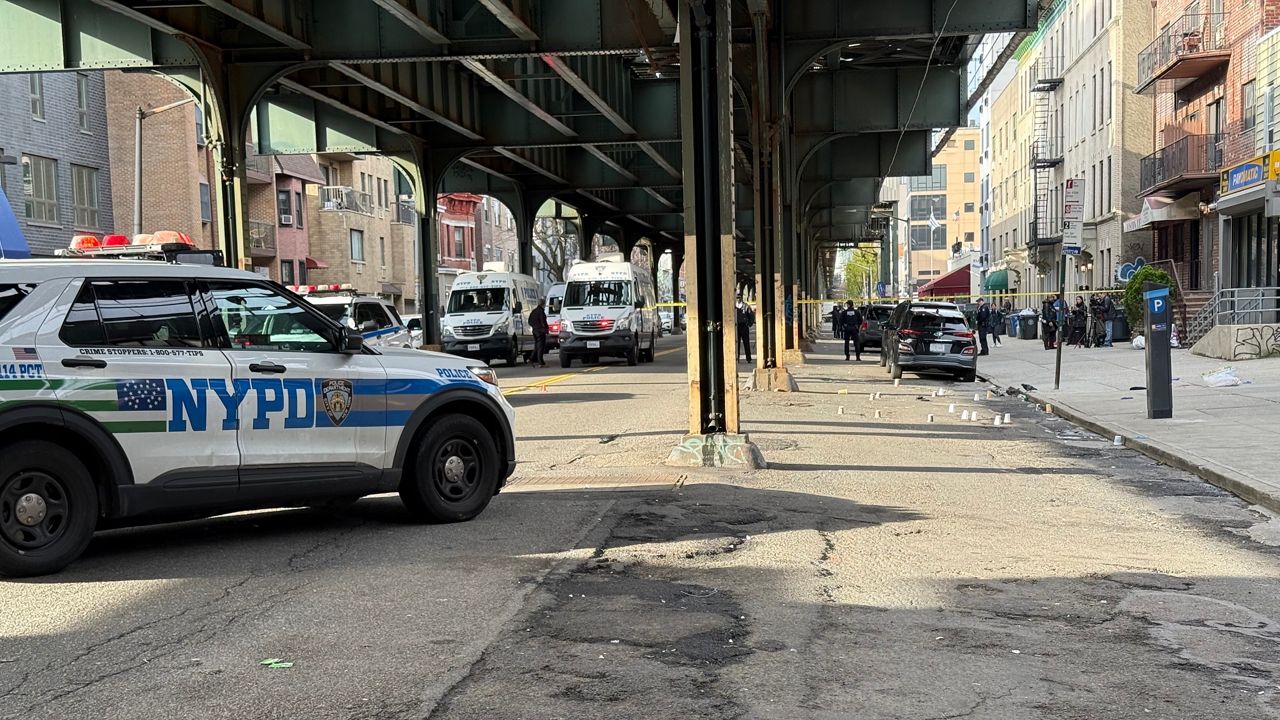Starting Friday, city businesses could be fined if they don’t store their trash on the curb in containers with lids rather than in black plastic trash bags.
It’s part of a citywide undertaking to get pesky rats off of the streets where they can chew through trash bag and decrease the quality of life, creating messes and foul odors.
What You Need To Know
- Starting Sept. 1, city businesses could be fined if they don’t store their trash on the curb in containers with lids rather than in black plastic trash bags
- It’s part of a citywide undertaking to get pesky rats off of the streets where they can chew through trash bag and decrease the quality of life, creating messes and foul odors
- The city’s Department of Sanitation will use a three-phase plan to implement the containerization of city garbage
“Here, no,” Ali Malik, owner Golo Food Market, said when asked if he has seen rats. “My store, no, no. Never see no rats. I don’t know about the restaurants but here, no.”
But after years of businesses and residents throwing black bags of trash on the sidewalks, Malik, whose store is in the Woodside section of Queens, said it’s going to be hard to get used to.
“It’s too much headache,” he said. “If you leave it outside, people going to take it. If you leave it inside, take it in, put it out, this is too much headache.”
The city’s Department of Sanitation will use a three-phase plan to implement the containerization of city garbage.
The first phase focuses on eateries that sell food-products, such as restaurants, bodegas, delis and grocery stores.
Since the rule took effect on Aug. 1, the Department of Sanitation said it has issued more than 21,510 warnings during the one-month grace period.
It coincided with an information campaign informing food-related businesses they can no longer place trash in black plastic bags on the curb.
“The problem is for so many restaurants that it poses a lot of challenges for,” said Andrew Rigie, New York Hospitality Alliance Director. “They don’t have space in their small restaurant for these big, dirty trash containers. If they put them right in front of their business, it restricts the amount of sidewalk cafe space they can use. We’ve heard of garbage cans being stolen.”
Violators of the new rule, which was introduced in May and endorsed by Mayor Eric Adams in June, include escalating fines.
The first offense will cost $50; the second, $100; the third and any other offenses will cost $200.
Rigie said restaurant owners he’s been in touch with see the rule as just another way for the city to squeeze money out of them. He believes there’s a better solution.
“Implement a policy where you can have a communal container for commercial businesses that can be placed somewhere in the street area that they could use and they could get rid of a lot of these challenges,” he said.
The second phase of the effort takes effect on Sept. 5 and involves all chain businesses with five or more city locations. These types of businesses will also be given a one-month warning period before they’re fined for failing to put their trash in lidded containers on the curb.
“You know, everything adds up,” Malik said. “$50, $100. So it’s not good.”
The city estimates that these two phases will lead to 5-million pounds of trash per day from 25% of all businesses being put into containers rather than on the street.
The third phase of the plan to containerize city garbage will extend to all residents.
Meanwhile, the Department of Sanitation said the rules will not apply to food-related businesses that receive off-street waste collection or recyclable materials, except for organic waste.


%20DSNY%20Trash%20Rules%20Reaction%20CG?wid=320&hei=180&$wide-bg$)

_CC_PKG_Manufacturers_Tariffs_133971722_389)


_Pkg_Trump_Tariffs_Jackson_Heights_Rest_Reax_Clean)